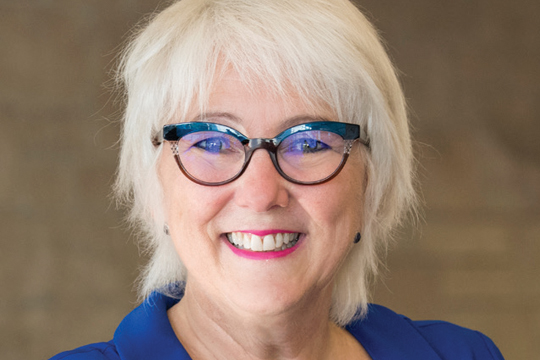
Some members of Federal Retirees prefer paper records for their travels, but many wouldn’t consider travelling without help from their phones, tablets and laptops, whether for reading material, electronic records or global-positioning system services.
Jaro Franta is finalizing plans for his annual winter getaway. This year it’s Guadeloupe, where he’ll stay for four months, exploring the archipelago by bike. Key in the gear he packs, along with his bike, is his laptop with its 17-inch screen. His cellphone serves as backup, but it’s also necessary for two-step verification when he accesses secure websites.
Electronic devices have become more than just handy in travel, particularly in the post-COVID world. For some, they’re indispensable.
The 65-year-old former employee of what was then the Atomic Energy Commission of Canada is asked if he would ever travel without his laptop and cellphone. His answer: “I suppose anything’s possible, but I certainly wouldn’t do it.”
Guidebooks, maps and even airline tickets are not as commonplace as they once were. In their stead are an endless supply of intangible replacements, all available through a cellphone. Travel has met the digital age.
Franta, who joined the Association in 2018, is often on his computer and is quite comfortable navigating the virtual world to help him travel through the real one.
But that’s not the case for everyone. A September post on the National Association of Federal Retirees Facebook page attracted a variety of responses from frustration accompanied by an “I give up” emoji, to a variety of suggestions on how to make the latest in technology work for you when you travel.
Adjust is a must, writes one respondent. You book the Uber ride-hailing service through the phone; trains too, they point out. The devices are handy on site to determine the best places to convert currency, to find out where you are or where you’re going using the phone’s GPS (global positioning system) or to take photos and post them on social media. You might even want to make a phone call.
Use an older cellphone and outfit it with a new SIM (subscriber identity module) card in the country you’re visiting with a plan that will likely cost much less than roaming fees charged by your Canadian service provider, one writer suggests.
Then there’s support for the old-school approach: paper. “We can pull them out faster than most people take to get into their phones,” writes internet services across much of Canada. Some 911 services couldn’t receive incoming calls and many businesses were unable to process debit card payment. Some aspects of society came to an absolute standstill as a result.
Yet, in Canada, these providers command some of the world’s highest rates — and that extends to roaming fees. So planning ahead can go a long way on the cost-savings front, observes Reed Sutton, co-founder of Edmonton-based travel blog Frugal Flyer with Josh Bandura.
“Consider ways to reduce your data usage such as downloading things for offline use from your most commonly used apps” such as Google maps, he suggests. Skype, What’s App and Facebook Messenger are convenient apps that can be used for free where wifi is available.
But for those who expect to actively use their phone to access the internet while on the go, a popular option is to opt for a local SIM card in the destination country. While usually cheaper, this can be needlessly complicated, Sutton adds, suggesting travellers consider an eSIM.
An eSIM is a digital SIM card that provides a set amount of cheap cell data for a pre-arranged period of time. Google Fi is one such U.S.-based service provider that allows for international coverage at an affordable rate providing seamless access to data, texting and calling in multiple countries with ease. It’s worth noting, however, that eSIMs only work with newer generation phones.
Given all the options, Roxanne Primorac decided, ultimately, to keep things simple. “When we were in California, we got a message that we had to change everything about the plan [we’d chosen] — it was just a nightmare,” recalls the London, Ont., Federal Retiree member.
After shopping around and deciding to focus on a service upon which she could rely without having to continually monitor its use, she eliminated the pay-as-you-go options. She ended up with a Canadian service that allows her full, unlimited use of her phone and includes 100 gigabytes of data monthly. While that far exceeds her data needs for an entire year, she has found the $85 per month charge is worth the peace of mind.
“We use it all the time. When we go to the U.S., we don’t have to do something special,” she explains, “we just use the phone the way we use it at home.”
For added protection, Sutton suggests those who do carry a cellphone make digital copies of important pieces of identification like the passport, as well as itineraries, tickets and insurance documents, in case the originals are lost. It could be as simple as taking pictures of each one. Mobile apps such asbGoogle Wallet and Apple Pay offer an alternative way to keep credit cards as well.
Hunt points out that there is hope for those who would rather keep all aspects of their travel real. The movement to disconnect, unplug and get away from technology has gained some momentum. And if the intention of the trip is to relax, perhaps on a beach, without going to a different town every day, ignoring the cellphone may well make the experiences more precious, Sutton adds.
Reading material
Our increasingly digitized world has meant good things for readers who are willing to read on a tablet or e-reader. Before, travellers used to have to decide which books to take and which to leave behind, but e-readers allow them to buy and download innumerable books that they can read whenever they like.
Tablets in particular, and smartphones for those with excellent eyesight, also allow readers to access books from their local library through an affiliated app such as Libby. The books are loaned to those who have library cards for a 21- day period, after which they must return them unless no one is waiting for that copy, in which case they can renew it for another 21 days.
Canadian travellers limited
Canadians travelling to Egypt and India should be aware of recent changes in the rules. As of Oct. 1, Canadian passport holders are no longer able to obtain a visa online before travelling to or upon arrival in Egypt. Visas must be obtained from an Egyptian embassy or consulate prior to leaving Canada.
An advisory from the Canadian government indicated those travelling to Egypt on an electronic visa on or after Oct. 1, 2023, will be denied boarding and/or entry into Egypt. Canadians planning to travel to Egypt are advised to contact the nearest Egyptian embassy or consulate before leaving Canada. Visit https://travel.gc.ca/ destinations/egypt#entryexit for more information.
Meanwhile, India suspended visa service to Canadians in September. The process has always been difficult, but temporarily became unavailable due to a rift between the two countries after Prime Minister Justin Trudeau said India may have been involved in the killing of pro-Khalistan activist Hardeep Singh Nijjar. In October, however, India reinstated visa services for Canadians of Indian origin, but didn’t reinstate them for tourists. The external affairs ministry says it will “review the situation on a regular basis.”

Linda Garcia, a professor at the University of Ottawa, is conducting an accessible travel study involving older adults with functional limitations.
Accessible travel study
University of Ottawa professors Linda Garcia and Michael Mulvey suggest advancements in technology could help older adults with functional limitations have smoother air travel experiences. The key, they say, is improvement in communication between users and service providers.
The two have assembled an intersectoral team committed to understanding accessibility through an “ageing and disability lens.” Members include researchers, airports, airlines, security and regulatory organizations, older adults and advocacy groups.
“Technological solutions may prove helpful to improve awareness, disclosure, design, processes and training as more knowledge is gained on the impact of sensory, mobility and cognitive abilities on air travel,” Garcia says.
The research team is keen to include retirees in their study and encourages anyone who may be interested to reach out to mulvey@uottawa.ca by email.

